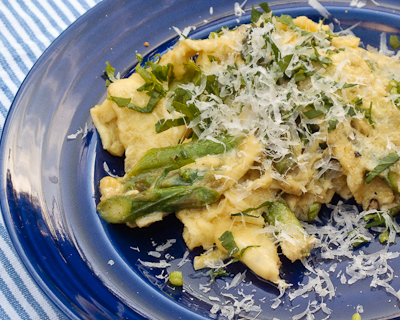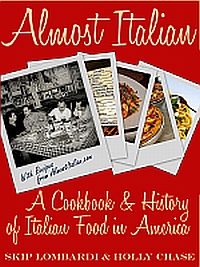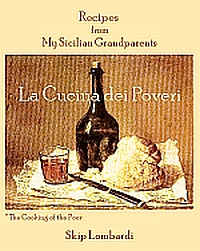Do Cookbooks Matter?
March 8th, 2010We write a lot about food. Our interests in history, gardening, and cooking inform our enjoyment of food and reinforce our belief that understanding culinary culture is vital to maintaining a civilized world.
All this has us thinking about the ways in which people share their gastronomic enthusiasms. Beyond growing, preparing, and consuming food together, people want to share ideas about food—even if they themselves may never serve or even taste the food they discuss. The best illustrations of this truism are the recipe-laden food blogs—and reader comments:
Delish!
Best ever, thanks for sharing.
I’m putting off my diet for this one, LOL
Must try, ‘cuz my hubby LOOOVES marshmallows.
OMG—this is awesome.
Anyone got a recipe for a good tomato sauce?
A keeper for sure!
As food bloggers, we’ve learned that only a small percentage of readers (ours or anyone else’s) will ever make any of the hundreds of thousands recipes to be found, free-of-charge, on the Internet or in the volumes filling miles of public library shelves.
But that does not prevent enthusiasts from prowling the aisles of independent and mega-chain bookstores that allow browsing at will and even provide tables and comfortable chairs to those they hope may actually buy books if given a chance to sit down with them. Last week we witnessed a 70-ish woman in the café of our local Barnes & Noble. Beside her, we counted a stack of of eight new cookbooks from which she was selecting recipes that she then copied in long-hand on a yellow legal pad. It didn’t appear she’d bought so much as a bagel or the café du jour, but she sat there for at least 90 minutes, deep in her research. We hasten to add that she was well-dressed and wearing a pair of sneakers that would sell for close to $150. (One of us is Italian and always zeroes in on shoes.)
Setting aside that copyist’s unabashed sense of entitlement, we’re still not sure what our sighting reflected or portends. Was it a good or a bad sign for those who write, publish and try to SELL words good enough to eat?
The magazine Gourmet is lying in state; many major American newspapers are on IV’s as feature writers, reviewers, and food editors lose their jobs. But recipes and food-focused articles continue to appear in many other publications on health, cooking, travel, and decor. Sit in the waiting room of your accountant, Toyota dealer, or daughter’s orthodontist; whether you pick up a six-month-old copy of Southern Living, the latest AARP Magazine, or a newsletter from an insurance company, you’re rarely more than a page away from a recipe accompanied by a photograph or article on comfort food; exotic ingredients; anti-oxidant vegetables; low-sodium or ethnic twists on old favorites; fusion, healthy-fast, or slow food; low-calorie, vegan versions of ethnic favorites… You get the drift.
This glut is an indication of Americans’ fascination with novelty and current fixation on “free” food (as in free of—guilt, salt, fat, gluten, cruelty, dairy, carbs, sugar, peanuts, pesticides, genetically modified ingredients, or red meat). Yet even with food everywhere we look, these are days of food exclusion. In our neighborhood, we’re hard-pressed to gather half a dozen friends who can share the same meal with omnivores like us.
And, despite an avalanche of free recipes and the worst economy many of us have ever known, writers and publishers are still bringing out new cookbooks. And people are still buying them.
We’ve asked ourselves and our friends why anyone still purchases a cookbook when it’s so easy to go online and come up with 45 Pad Thai, Pot Roast, or Paella recipes in less time than it takes to open a bottle of wine.
We’re collectors ourselves and have been at this a while. Thus, we weren’t surprised by the answers we got, which confirmed that many of the most avid cookbook accumulators never make more than one or two recipes, even from a book they love.
So what forces are sustaining cookbook publishing?
In the coming days, we’ll be trying to answer that as we review some new titles on the Sarasota Soundings blog.
And we’d like your contributions, too. Tell us why you and those in your own circles buy cookbooks or like to receive them as gifts. If you want to cite a favorite (and agree to eschew words like “delish” and “awesome”) we’d welcome a couple of lines telling us why a particular book speaks to you.

Photo Courtesy Austin Evan
In the meantime, stay tuned for our take on several pounds of books on traditional and revamped food from Portugal to Korea…




